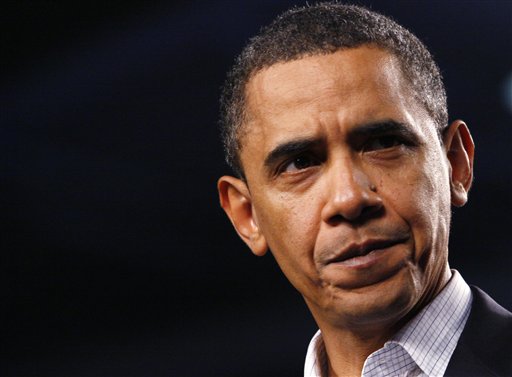At crucial moments in President Obama’s career, there’s always a speech to be given. The defeat of his party’s candidate in Massachusetts, which has resulted in healthcare reform teetering on the brink, is clearly such a moment of crisis. Lucky for the president, late January is traditional speechmaking season: This Wednesday, he’ll deliver what is formally his first State of the Union address. (He gave a similar speech to Congress last year shortly after being inaugurated, but it was not a State of the Union.)
Since Republican Scott Brown won the Massachusetts race last week, the White House has struck a noticeably more populist tone. Presidential advisers, and the president himself, have been at pains to say that the same basic phenomenon that elected Brown — dissatisfaction with how Washington is doing business — also elected Obama himself.
“The same thing that swept Scott Brown into office swept me into office,” the president told George Stephanopoulos. “People are angry and they are frustrated. Not just because of what’s happened in the last year or two years, but what’s happened over the last eight years.”
The State of the Union gives the president a chance to initiate his argument for the coming weeks. But some Democrats are chafing at the approach he’s taken, which recalls the feistier spirit of the presidential campaign. There are some doubts about whether Obama has the chops to pull of the populist tone that’s seeming likely now.
Dee Dee Myers, who served as White House press secretary under President Clinton, thinks that seeming too combative isn’t in keeping with the president’s personality, and would read as an affectation. Likewise, Michael Gerson, a speechwriter for President George W. Bush, doesn’t think much of Obama’s fight-the-power argumentation. “When he tries to be populist and partisan, he often comes across as humorless, brittle and nasty. … He’s the worst populist I’ve ever seen.”
And Democrats are starting to echo Republicans in their complaint that the statute of limitations for blaming the Bush presidency has passed. As Democratic consultants Kristian Denny Todd and Steve Jarding put it, “12 months into your ‘mandate to change,’ Americans see you as a card-carrying member of the arrogant political establishment that they increasingly believe is out of touch at best and self-serving at worst.”
Nevertheless, a return to the arguments of the campaign seems to be in the cards. The White House has elevated former campaign manager David Plouffe, who’s serving as an outside advisor, and the major speech opportunity fairly begs for it. The irony here is that, despite the doubts of his fellow Democrats, there’s never been a time when the political expediency of populism aligned so neatly with what’s actually happening to this president’s agenda. The major domestic issues he was elected to solve remain unsolved precisely because a political minority, empowered by insider wizardry, is obstructing action. As the Village Voice memorably put it after the GOP’s success in Massachusetts, “Scott Brown Wins Mass. Race, Giving GOP 41-59 Majority in Senate.”
Likewise, to an alien newly arrived on earth, it would have seemed at times this year that the decisive and sweeping election results of November 2008 must have been an endorsement of handing over all political power to one of the Senate’s centrist hostage-takers — Sen. Olympia Snowe, R-Me., perhaps, or Sen. Ben Nelson, D-Neb., or Sen. Joe Lieberman, I-Conn. To paraphrase Todd and Jarding, an “arrogant and self-serving political establishment” is exactly the phenomenon that’s frustrated the Obama presidency so far, even as the public has come to associate him with it.
In other words, the president has some clear lines to draw between himself and the body he’ll be addressing, and perhaps rebuking, on Wednesday. It’s true that he probably can’t move the House or the Senate with a speech — he’s tried that before. But, on occasion, he has been able to inch the public toward his side, and that can make a difference.


